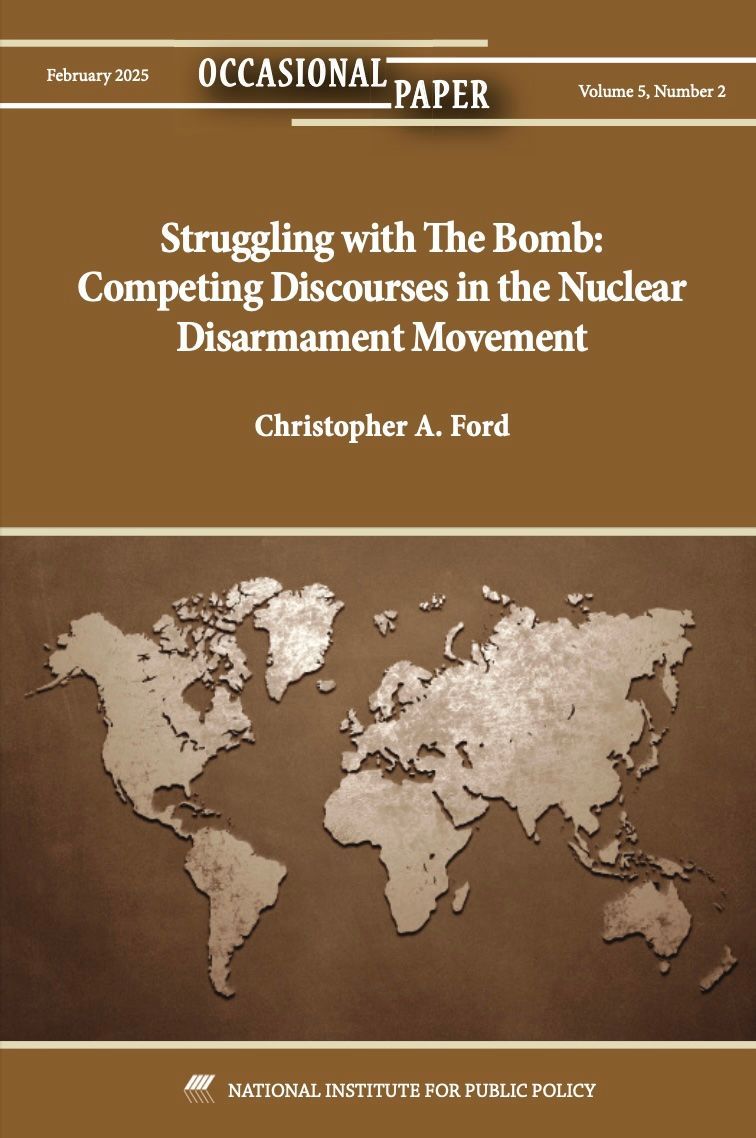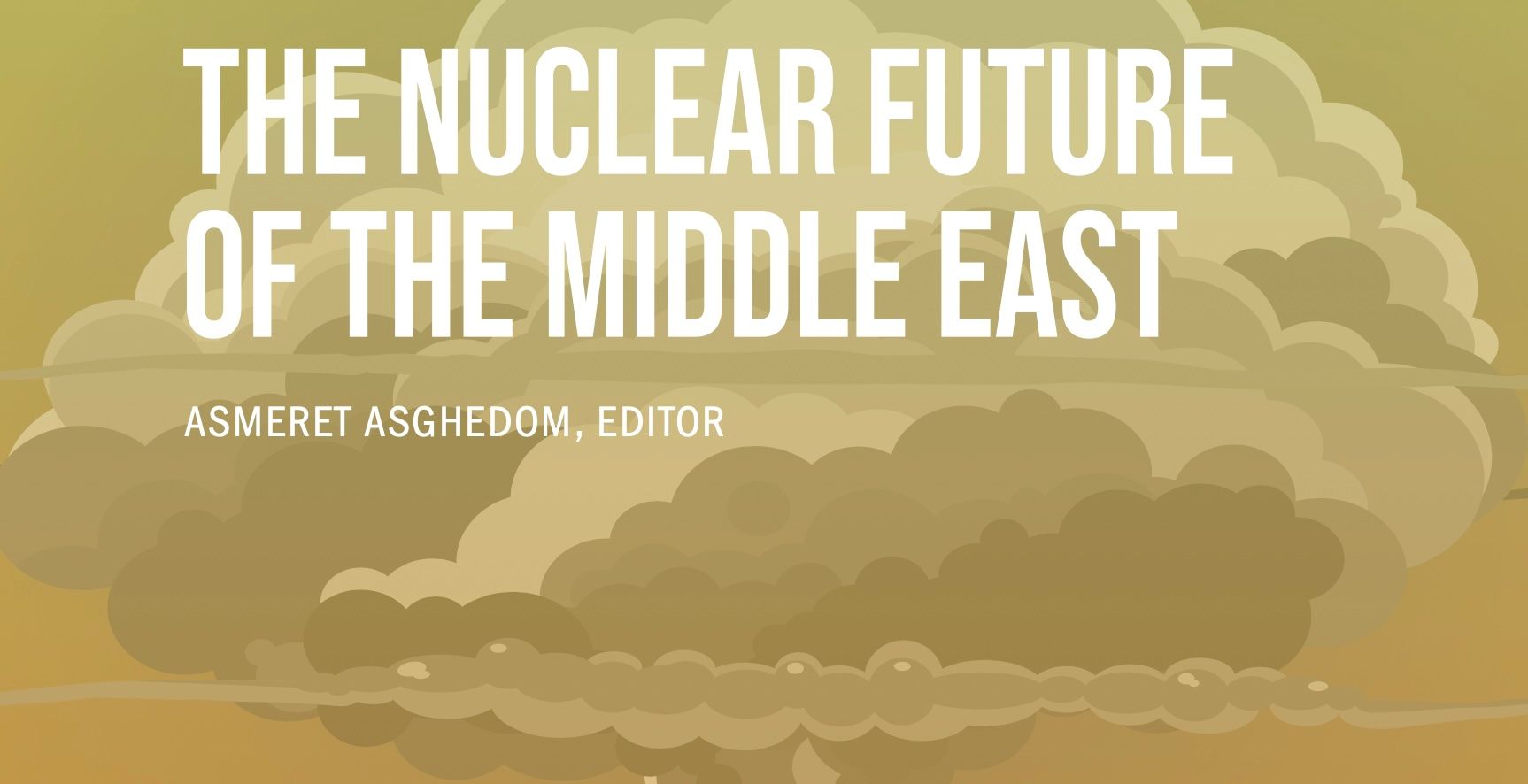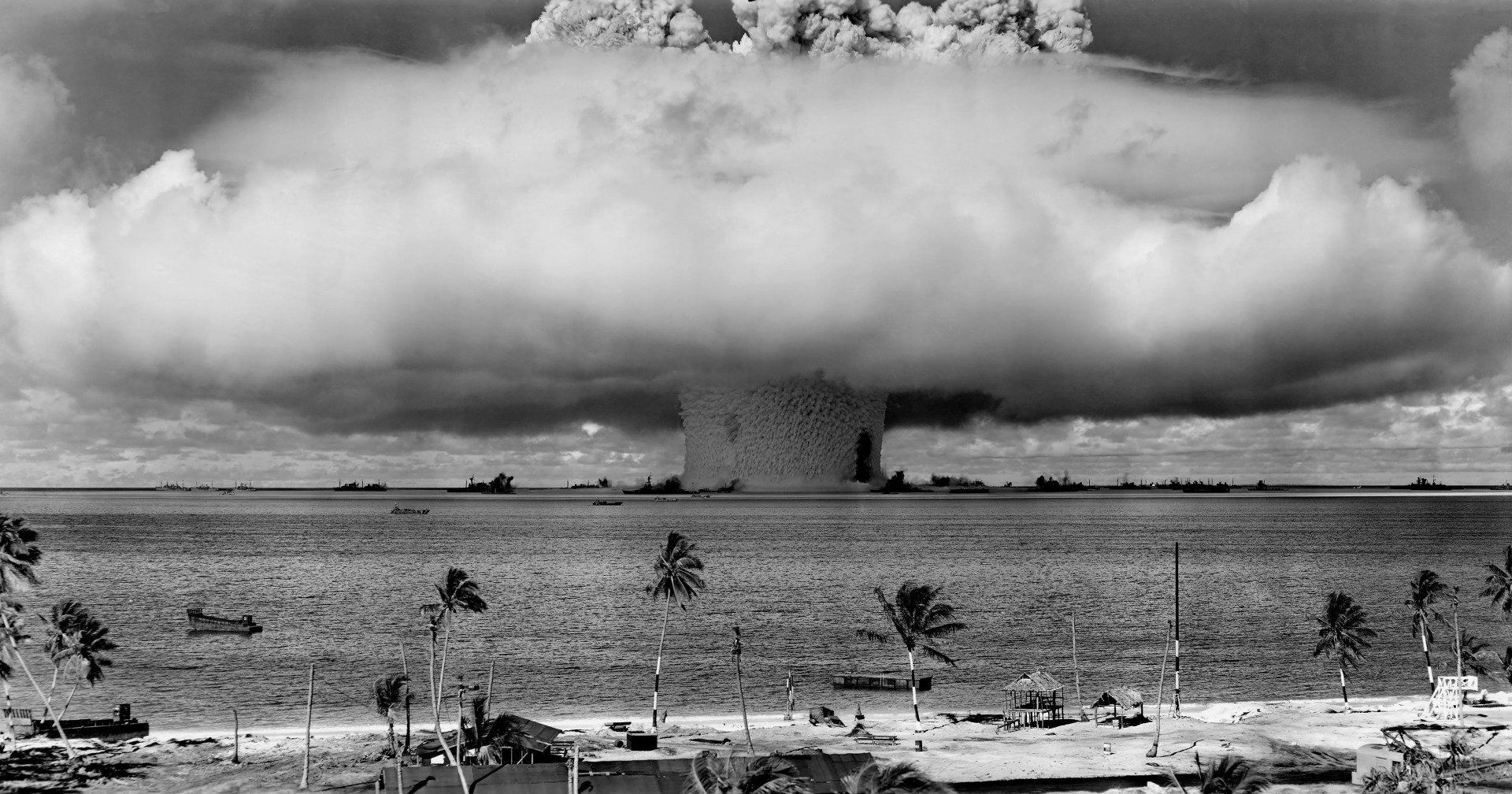The Hon. Christopher A. Ford
New Paradigms Forum -- International Security Policy Since 2009
U.S. Diplomacy and Deterring China in the Taiwan Strait
Below are remarks Dr. Ford delivered on June 21, 2022, to a conference on "Deterring China in the Taiwan Strait" sponsored by the National Institute for Public Policy.
Thank you to Dave [Trachtenberg] and Keith [Payne] for the chance to discuss the National Institute for Public Policy’s new study on “Deterring China in the Taiwan Strait,” Journal of Policy and Strategy, vol. 2, no. 2 (2022). This study is a real contribution at an important time, and I hope it is widely read.
The NIPP study makes quite a few good points, among them the importance of “tailoring” deterrence to the adversary, and the challenges the United States now faces as a result of its collective drift away from taking great power competitive strategy seriously for an entire generation – during which China has been preparing itself for us. The document also commendably draws attention, to such things as the role that limited missile defenses can play in reducing adversary incentives to engage in nuclear weapons use as a tool of escalation dominance, the importance of more effectively countering Chinese Communist Party (CCP) propaganda and influence operations, the need to adopt better-coordinated approaches to denying China access to sensitive technologies, the need to expand the United States’ range of forward-deployable nuclear systems (e.g., SLCM-N) in response to China’s build-up, and the imperative of augmenting Taiwan’s capabilities and making it more thoroughly “indigestible” to potential Chinese invaders.
For my own contribution to this discussion – and with the caveat that these are my personal views and I speak here only for myself – I’d like to flag a couple of further points suggested by the NIPP study, and which I think are of significance from the perspective of U.S. alliance and partner relationships.
The study focuses with special emphasis on the idea of denying China its “theory of victory” in the military arena. But such an approach also works well in peacetime competition.
In peacetime competition, we don’t need everyone in the Indo-Pacific to jump to our tune. That’s China’s objective, not ours. The CCP’s ambition is to craft a Sinocentric region – and indeed a Sinocentric world: one in which everyone tips their hat and kowtows appropriately to the CCP in some kind of modernized version of the Middle Kingdom’s ancient tributary system. In such a system, all infrastructural, political, economic, and diplomatic ties are essentially “hub-and-spoke” relationships tying everyone asymmetrically back to a China that sits at the center of everything.
That the CCP’s vision. But we don’t need to dominate the Indo-Pacific like that. We just need to deny China the Sinocentric hegemony it wants, by helping the states of the region – and farther afield – remain independent and autonomous, minimizing their dependency upon and associated risk of coercion by Beijing, and forestalling their tributary subjugation.
China only “wins” if it ties states in the region asymmetrically to itself and exploits that dependency for leverage in making everyone defer reflexively to CCP desires. We “win” merely by helping other states retain their freedom of action, and by building ways in which they can interact with the world and thrive with minimal exposure to Chinese coercion.
The study makes a strong point about how we could help deny China its Sinocentric theory of victory in this aspect of the peacetime competition by promoting the establishment of an ever-stronger “latticework” of cross-cutting relationships between states in the region that have strength and vitality in ways that don’tinvolve China. I agree with that point, as I made clear in one of NIPP’s Occasional Papers earlier this year.
But here’s what I’d like to stress today: as the “latticework” concept illustrates, success in peacetime competition with China is by definition not something that the United States can do alone. If we do not cultivate relationships and approach competitive challenges in close collaboration with a wide network of foreign allies and partners, that means “losing.”
To put it another way, if we ignore or cold-shoulder our friends, we do China’s work for it in diminishing the United States’ influence and role in the region and in the world, and in helping pave the way for a new Sinocentric order.
Similar arguments about the importance of working with others, moreover, can be made for peacetime competition in technology and economic power, where “technology diplomacy” will be ever more critical to our success. There, too, despite all the strategic ground Western states have lost over the years through incautious high-technology exports that maximized short-term profits in China at the cost of long-term strategy, we can still be effective in blunting the problematic aspects of China’s advances if and to the degree that we act in concert with other sophisticated technology possessors in the developed world. But even as powerful as we are, we have only a modest chance to do so if we try to act alone.
Needless to say, alliances and partnerships are also crucial in the military context, as the NIPP study makes clear. But their importance goes beyond simply the concrete capabilities that our friends could “bring to the fight” if it came to it. CCP leaders are big believers in “Comprehensive National Power” (CNP) calculations, and they appreciate the degree to which international relationships are an important facet of a country’s power.
The perception that things in the Indo-Pacific are moving China’s way, therefore, is seen not just as a result of China’s rise but also – in a sort of positive feedback loop – as a factor that CCP officials expect to accelerate that rise. Some momentum, in other words, helps beget more momentum.
So far, this “nothing succeeds like success” dynamic is perceived as helping China. Indeed, perceptions of favorable momentum are probably fueling Xi Jinping’s adventurism. But it also follows from such thinking that “nothing fails like failure.” To the degree that our improved engagement with allies and partners can blunt or reverse impressions of Chinese momentum, therefore, this could itself be seen as a shift in trends contributing to the “correlation of forces,” with potential implications in reducing China’s odds of success not only in peacetime competition but in potential conflict as well.
This is thus another way in which good diplomatic relationships contribute to deterrence. Stronger U.S. relationships contribute to American CNP, as it were – and in Chinese strategic thinking, countries with superior CNP tend to win wars, while those with inferior CNP to lose them. (Notably, through the prism of the CCP’s modern legitimacy narrative, China’s failure to elicit awestruck tributary deference in regional states might also be taken to signal some defect in the Party’s virtue – a potentially very dangerous flaw in the pseudo-Confucian narrative of benevolent omnicompetence the CCP has tried to construct for itself.)
Accordingly, active engagement and diplomacy – working closely with U.S. allies, partners, and friends – are crucial no matter how you slice it.
Don’t get me wrong. One might wish the United States were still in a position in which to some extent we had the luxury of not needing allies and partners all that much: the kind of unquestionably dominant, military, economic, technological, and diplomatic “hyperpower” position that we enjoyed after the end of the Cold War. But this is no longer that world. In this world, competing effectively with China requires us to have friends, and to work with them.
I know full well how frustrating and challenging alliance and partner relationships can sometimes be, and how even traditionally close foreign counterparts do not always see eye to eye with American officials. Nevertheless, if we want to succeed in our peacetime competition with China and blunt the threats it presents to the free and open international system we prize so dearly, if we want to deter Chinese aggression, and if we want to have the best possible chance to prevail in the event of conflict, we cannot do these things by ourselves. If we want to succeed, real diplomacy is the cost of doing business – and a critical ingredient to denying China its Sinocentric theory of victory.
-- Christopher Ford



Copyright Dr. Christopher Ford All Rights Reserved





